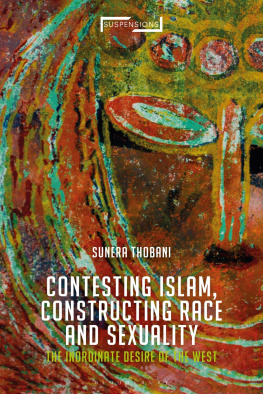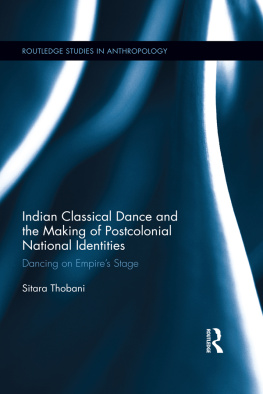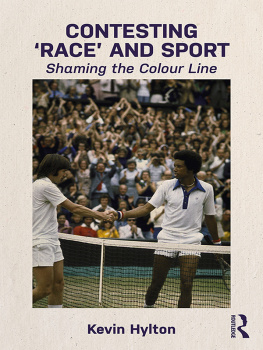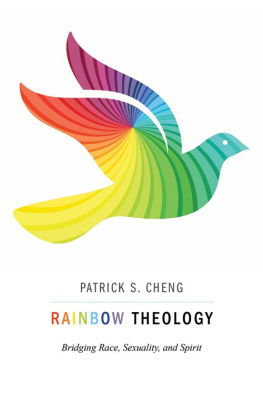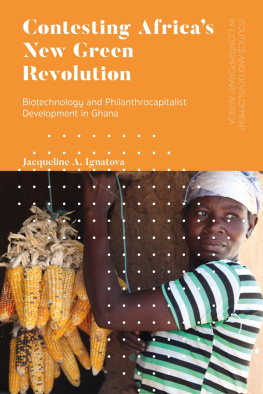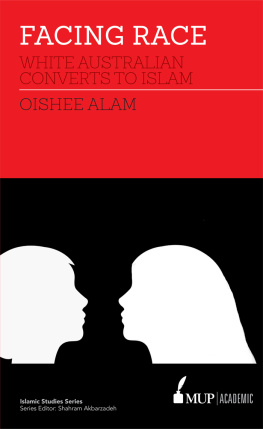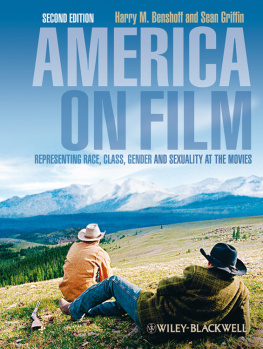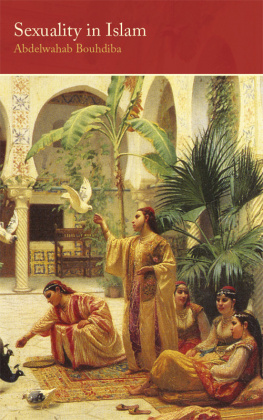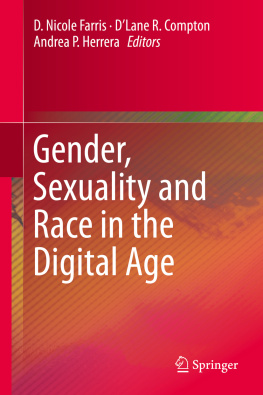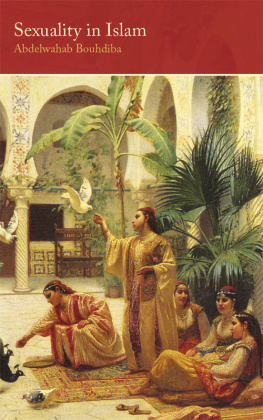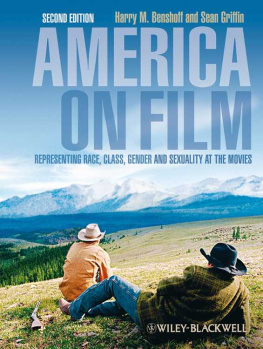Thobani Sunera - Contesting Islam, Constructing Race and Sexuality
Here you can read online Thobani Sunera - Contesting Islam, Constructing Race and Sexuality full text of the book (entire story) in english for free. Download pdf and epub, get meaning, cover and reviews about this ebook. publisher: Bloomsbury Publishing Plc, genre: Religion. Description of the work, (preface) as well as reviews are available. Best literature library LitArk.com created for fans of good reading and offers a wide selection of genres:
Romance novel
Science fiction
Adventure
Detective
Science
History
Home and family
Prose
Art
Politics
Computer
Non-fiction
Religion
Business
Children
Humor
Choose a favorite category and find really read worthwhile books. Enjoy immersion in the world of imagination, feel the emotions of the characters or learn something new for yourself, make an fascinating discovery.
- Book:Contesting Islam, Constructing Race and Sexuality
- Author:
- Publisher:Bloomsbury Publishing Plc
- Genre:
- Rating:3 / 5
- Favourites:Add to favourites
- Your mark:
- 60
- 1
- 2
- 3
- 4
- 5
Contesting Islam, Constructing Race and Sexuality: summary, description and annotation
We offer to read an annotation, description, summary or preface (depends on what the author of the book "Contesting Islam, Constructing Race and Sexuality" wrote himself). If you haven't found the necessary information about the book — write in the comments, we will try to find it.
Contesting Islam, Constructing Race and Sexuality — read online for free the complete book (whole text) full work
Below is the text of the book, divided by pages. System saving the place of the last page read, allows you to conveniently read the book "Contesting Islam, Constructing Race and Sexuality" online for free, without having to search again every time where you left off. Put a bookmark, and you can go to the page where you finished reading at any time.
Font size:
Interval:
Bookmark:

Contesting Islam, Constructing
Race and Sexuality
Suspensions: Contemporary Middle Eastern and Islamicate Thought
Series editors: Jason Bahbak Mohaghegh and Lucian Stone
This series interrupts standardized discourses involving the Middle East and the Islamicate world by introducing creative and emerging ideas. The incisive works included in this series provide a counterpoint to the reigning canons of theory, theology, philosophy, literature, and criticism through investigations of vast experiential typologiessuch as violence, mourning, vulnerability, tension, and humourin light of contemporary Middle Eastern and Islamicate thought.
Other titles in this series include:
Gilles Deleuze, Postcolonial Theory, and the Philosophy of Limit , Rda Bensmaa
The Quran and Modern Arabic Literary Criticism: From Taha to Nasr , Mohammad Salama
Hostage Spaces of the Contemporary Islamicate World , Dejan Lukic
On the Arab Revolts and the Iranian Revolution , Arshin Adib-Moghaddam
The Politics of Writing Islam , Mahmut Mutman
The Writing of Violence in the Middle East , Jason Bahbak Mohaghegh
Iranian Identity and Cosmopolitanism , edited by Lucian Stone
Continental Philosophy and the Palestinian Question , by Zahi Zalloua
Sorcery, Totem and Jihad , Christopher Wise
Orientalism and Imperialism , Andrew Wilcox
Traces of Racial Exception , Ronit Lentin
Transgression and the Inexistent , Mehdi Belhaj Kacem
Plural Maghreb: Writings on Postcolonialism , Abdelkebir Khatibi
Revolutionary Bodies , K.S. Batmanghelichi
Contesting Islam, Constructing Race
and Sexuality
The Inordinate Desire of the West
Sunera Thobani

In memory of my mother, Roshan
The strength of her spirit runs through my life every day, in ways that even I dont quite understand.
Contents
The in/human subject
Western constitutions: Religion, race and coloniality
Sex/uality in the Islamic Orient
Feminism at war
Remaking the West: Sovereignty, whiteness and the Judeo-Christian
This work began in an entirely unanticipated manner. Following the 9/11 attacks, I made a speech at an anti-violence feminist conference urging womens organizations to oppose the then looming invasion of Afghanistan, and the war on terror in general. The hatelash that followed a small taste of things to come pushed me into a deeper and far lengthier study of the issues mentioned only briefly in that speech. This book is the result of that larger study; it has pulled me in directions I had never before imagined taking.
The journey has been long and hard, but also exhilarating at precisely the right moments. The arguments presented here are not palatable to many: I have lost friends and colleagues along the way. But I have also been met with unbelievable generosity from family and friends, from previously unknown fellow travellers, who have given me such comforts big and small that they continue to enrich my life beyond measure. Exactly the right person showed up, exactly the right experience had to be undergone, exactly the right reference came my way at exactly the right moment on this journey. Serendipity? Coincidence? Fate? What I do know is these gifts I would have never been fortunate enough to receive had I not travelled this particular path.
My deepest thanks go to Malinda Smith, Shelina Kassam, Hanifa Kassam, Dana Olwan, Sedef Arat-Koc, Mustafa Koc, Suvendrini Perera, Sara Ahmed, Meyda Yeenolu, Mahmut Mutman, Nadera Shalhoub Kevorkian, Cavlan Erengezgin, Yuezhi Zhao, Radha DSouza, Aziz Choudhry, Huma Dar, Seemi Ghazi, Benita Bunjun, Parin Dossa, Simrita-Gopal Singh, Farah Zeb, Itrath Syed, Farida Akhtar, Farhad Mazhar, Fatima Jaffer, Zool Suleman, Habiba Zaman, Susan Boyd, Dara Culhane, Jin Haritaworn, Geeta Sondhi, Akbar Thobhani, Monya Thobhani, Zaibby Sheikh, Rabab AbdulHadi, Nahla Abdo, Sami Zubi, Michelle Hartman, Shimona Sharoni, Mridula Thanki, Imtiaz Popat, Alnoor Gova and many others for standing with me during some of the most difficult challenges I have faced working on this project. I was fortunate enough to be invited as a Visiting Scholar and Speaker at a number of institutions while I was working through the ideas presented in this book. I am deeply thankful for the warm generosity, and spirited exchanges, I experienced at each of these sites. Again, I was lucky enough to have spent just the right amount of time during these visits and learn enough about the conditions, debates and concerns relevant to my study unfolding there to see how directly and intricately these were interconnected. I would like to thank all the colleagues and friends who facilitated my visits to Bilgi University, Delhi University, Jawaharlal Nehru University, Aalochana, the London School of Economics, UBINIG, the Indian Institute of Advanced Studies, Pune University, Banaras Hindu University, University of Dhaka, Jamia Millia Islamia University, University of Westminster, Concordia University, McGill University, Duke University, the Doha Institute for Graduate Studies, Syracuse University, and the Communication University of China.
Sitara continues to be my guiding star, my sisters Munira and Karima have loved and supported me in ways too deep to untwine, in the ways only sisters can. David Hacker and Christopher Schweitzer have been incredibly generous, welcoming me without reservation whenever I arrived on their doorsteps. The warm-heartedness of all our extended families, Thobanis, Jiwanys, Hackers, Coxalls, Imirsids, Kassams, have provided me with care and sustenance, including much good food and too much good cheer, during the writing of this book. This book of yours, when will it be finished?, my aunty Laila admonished me far too many times to count, keeping me plodding on even during those times when I just wanted to run away from it. I thank you all, from the bottom of my heart.
This study would not have appeared as a book without the labour and support of Cavlan Erengezgin and Faisal Nahri, who went well above and beyond the call of duty in helping me clean up and format the manuscript to meet various deadlines. The comments of the anonymous reviewers helped me sharpen my focus and analysis; I am grateful for the time they have taken to read my work. Many thanks to Jason Mohaghegh and Lucian Stone, the Series Editors for Suspensions: Contemporary Middle Eastern and Islamicate Thought , for their enthusiastic support for this work. At Bloomsbury Press, Liza Thompson and Lucy Russell have been terrific to work with, their assistance has made the publication process so much smoother for me. My thanks also to the Design and Production Teams.
Arax Nazaris painting, which appears as the books cover, captures perfectly the issues, relations and histories of violence studied in this book. I am very thankful for her generous consent for the use of this work.
I have received funding for this project from the Social Science and Humanities Research Council, UBC Hampton Fund, as well as UBC VP Research Fund. I am grateful for this support.
The following publishers have kindly given their permission for reprinting early versions of the arguments presented in this book as cited below: Feminist Theory , borderlands , Hypatia , University of Toronto Press, Routledge and Between the lines. I would like to thank them for this support. A very special thank you to Copyright (c) 1970, 1992, Betty Shabazz and Pathfinder Press for use of Malcolm Xs quote, and the Journal of Islamic Sciences for use of Talal Asads quote, that are the epigraphs to this book.
Font size:
Interval:
Bookmark:
Similar books «Contesting Islam, Constructing Race and Sexuality»
Look at similar books to Contesting Islam, Constructing Race and Sexuality. We have selected literature similar in name and meaning in the hope of providing readers with more options to find new, interesting, not yet read works.
Discussion, reviews of the book Contesting Islam, Constructing Race and Sexuality and just readers' own opinions. Leave your comments, write what you think about the work, its meaning or the main characters. Specify what exactly you liked and what you didn't like, and why you think so.

